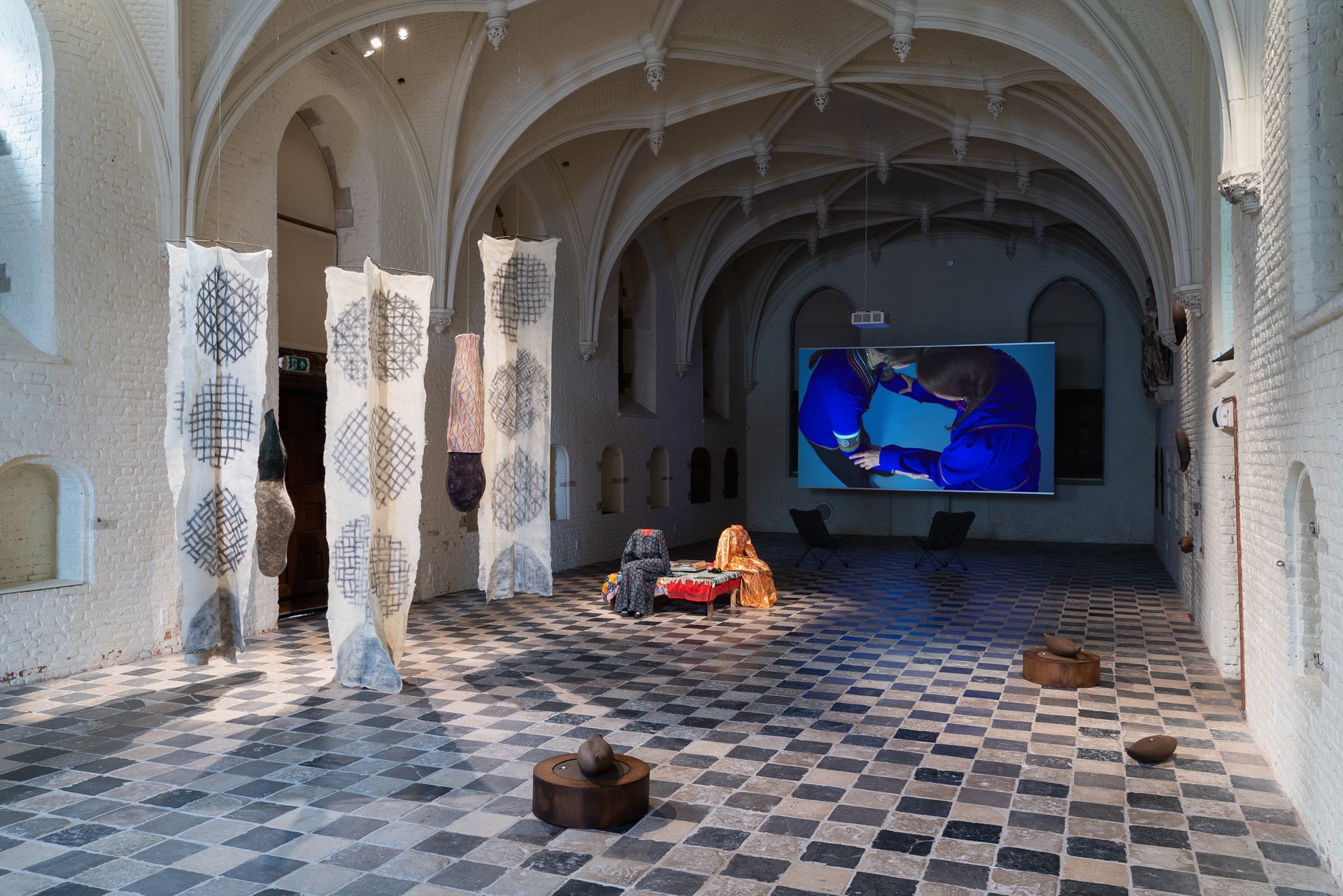Social Memory, Arts, and Reconciliation
Lecture
28 November 2025
6 – 8 pm
Vleeshal (Map)

What is the purpose of remembering what hurts? Why reactivate wounds through memory, or bring back pain through images that recall the past? Can we ever repair what is broken?
Join us on Friday, November 28, for a lecture on social memory, arts, and reconciliation by Sandra M. Rios Oyola. This lecture is part of the public program for the exhibition Tatar* Kiss that is currently on view. To join the lecture, please send an email to office@vleeshal.nl to reserve a spot. There is a limited number of seats available.
LECTURE: Social Memory, Arts, and Reconciliation by Sandra M. Rios Oyola, PhD
When: Friday, November 28, 2025, 7-9pm
- Walk-in: 7 - 7:15pm
- Lecture: 7:15 - 8:15pm
- Q&A: 8:15 - 9pm
Where: Vleeshal, Markt 1, Middelburg
Note: this program is in English
About the exhibition
The title Tatar* Kiss refers to the “Tatars,” a term used to describe various groups of Indigenous, nomadic, non-Christian peoples in Central, Northern, Eastern, and Western Asia. Many of these peoples were once oppressed and colonized by Russia and still form a part of the Russian Federation today. Because they were often considered “barbaric,” and Russia positioned itself as “civilizing,” these Indigenous communities were subjected to colonization and their cultures were deliberately erased. As a result of this erasure, stories are lost, languages disappeared, and the racialization and oppression of Indigenous peoples continue to this day.
The exhibition Tatar* Kiss is curated by Elena Ishchenko and Maria Sarycheva of the curatorial duo League of Tenders (who left both Russia in 2022), and gives a voice to artists who resist oppression and colonialism, and who critically reflect on what this means for them. At the same time, the exhibition foregrounds stories of resistance and cultures that are erased throughout the years. The exhibition features work of seven artists whose The group exhibition Tatar* Kiss showcases seven artists, among them are Bashqort, Buryad-Mongolian, Circassian, Volga Tatar, Kalmyk and Curaçaoan.
Especially for this exhibition, Vleeshal invited Dr. Sandra M. Rios Oyola, Assistant Professor at University College Roosevelt, to give a lecture about her research into social memory, arts, and reconciliation.
About the lecture
The call to remember serves many purposes: to prevent repetition, to learn from past injustices, and to recognise the suffering, as well as the resilience, of those who resisted oppression. Yet memory also raises difficult questions. Can we remember without reliving pain? Are emotions inseparable from memory? What can we do with the trauma that we inherit from previous generations?
We use the term ‘social memory’ because we do not remember in isolation; we connect to the past through stories and narratives that shape our identity. Memory is not spontaneous; it emerges from what has been cultivated, especially when we are tempted to forget and move on.
Art plays a crucial role in this process: it enables us to express the unspeakable, connect with our emotions, resist the politics of forgetting, and amplify the voices of the silenced. Through art, memory becomes visible, in museums, public spaces, and in the quiet murmur of songs or verses that are transmitted in the privacy of homes and rooms.
The legacies of colonial violence, human rights violations, and genocide linger in the present, and unhealed wounds risk perpetuating cycles of harm. To transform memory into a tool for peace requires solidarity with past generations and a commitment to truth-telling. Art can plant seeds for dialogues between memory and reconciliation.
In response to the exhibition Tatar* Kiss, this talk examines the role of memory and the arts in promoting peacebuilding and reconciliation. It will explore the resonance of the exhibition's topics in other parts of the world, with a focus on Latin America, specifically Chile and Colombia. Dr. Rios Oyola will reflect on how artistic practices, both institutional and grassroots, contribute to societies' efforts to confront difficult pasts, reflect on failed reconciliations, and envision more democratic futures.